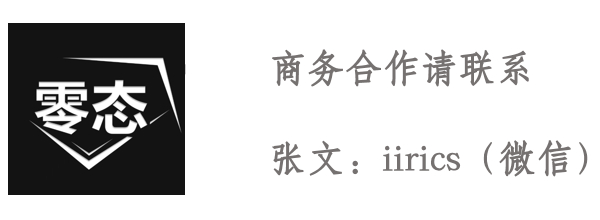
Author|Wu Di
Editor|Hu Zhan Jia
Operation|Chen Jia Hui
Produced by|LingTai LT (ID: LingTai_LT)
Those who believe in AI are all waiting for an “App Store” moment for AI.
This is because Apple created a software ecosystem for the mobile internet era with the App Store. In the AI era, AI believers are eagerly anticipating the emergence of an App Store for AI to shape the future AI ecosystem.
After OpenAI ignited the fire of AI Agents with GPT last year, people began to speculate whether AI Agents would be the key to unlocking the “App Store” moment. Because AI Agents have made the future forms of AI clearer than ever before.
On January 9, 2024, DingTalk launched the AI Agent implementation example “AI Super Assistant” and announced that it would launch the AI Assistant market, AI Agent Store, in April this year, while inviting developers to join DingTalk’s “AI Agent Store” ecosystem, setting a goal of “10 million AI Super Assistants in 3 years,” and aiming to become a platform for incubating, distributing, and trading AI Agents.
At the press conference, DingTalk also used a “700 million users united against” call poster, referencing last year’s announcement of surpassing 600 million users, where all users humorously joined in the “6 million users all against” meme.
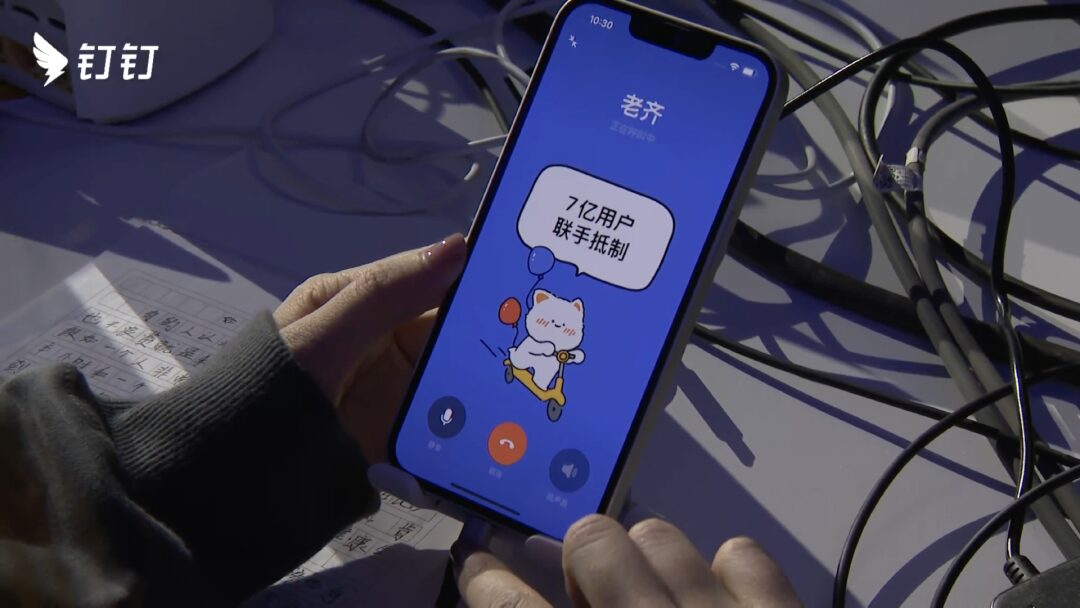
▲Image: DingTalk plays with memes at the press conference
What does this “10 million in 3 years” mean?
In 2008, the Apple App Store launched with 500 applications, and by April 29, 2022, the number of apps in the Apple Store (China region) reached 1.31 million. This means that DingTalk aims to achieve the number of apps that took others 14 years to reach in just 3 years, and to multiply it by 8.
Is this flag too hastily set? What exactly makes DingTalk’s ambition so inflated?

DingTalk knows very well that workers do not like DingTalk.
Anyone who has used ToB software knows that this type of software has a common characteristic: complex functions, unattractive interfaces, poor user experience, and usually large file sizes, which make them feel bloated and cumbersome.
In a video shown at the January 9 press conference, a content creator calculated that there are 32 buttons directly clickable on the DingTalk homepage, and counting overlays, submenus, etc., the homepage contains nearly 100 functional buttons.
DingTalk, as a ToB application, is undergoing an irreversible process of becoming bloated.
However, unlike pure ToB applications, DingTalk is also a ToC application. This means that whether it’s B-side or C-side users, DingTalk wants them all, which also means that the DingTalk team has to face criticism from both ends, especially from elementary school students.
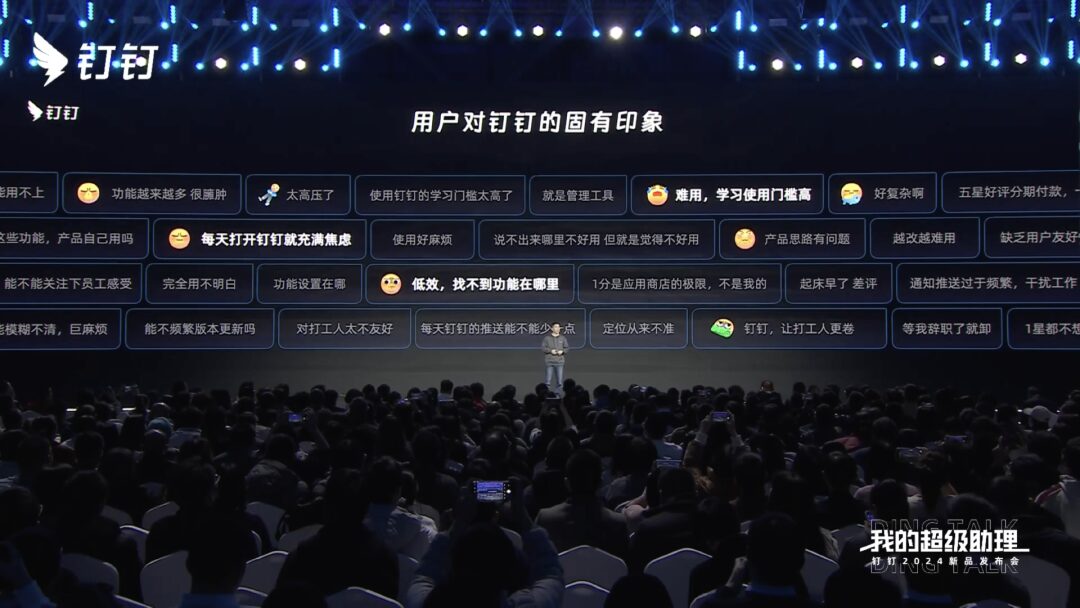
▲Image: User impressions of DingTalk displayed at the press conference
For B-side users, there is always a demand for adding new features; for C-side users, there are always too many functions in DingTalk. But both sides share a consensus: most functions are unnecessary, and the needed functions are often hard to find.
Since three years ago, when DingTalk began to deepen its value in business scenarios, it has been investing heavily in product managers, trying to simplify DingTalk through product design. From the actual effect, the complaints about DingTalk’s difficulty of use have not diminished, and the more than 100 functional buttons still cannot be simplified to 10.
Until the emergence of AI Agents.
From the perspective of specific users, I don’t need to find the corresponding function among a large number of functional buttons; I just need to tell a “super assistant” my task, and let AI figure out how to find the corresponding function.
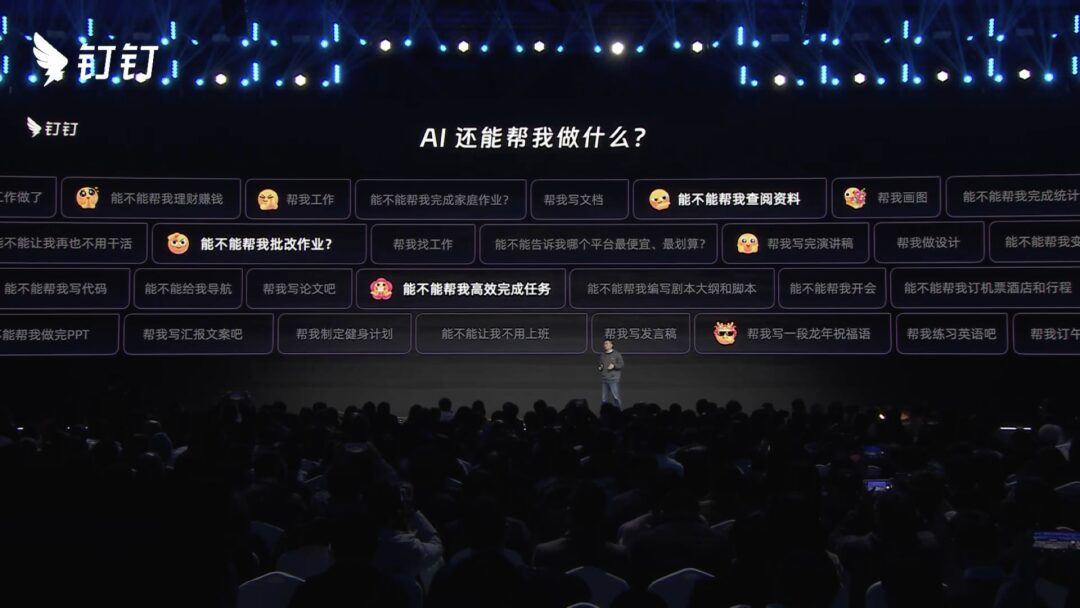
▲Image: What is different about DingTalk’s AI
In the AI assistant’s function demonstration, users can make task requests to the AI just like they would with a real assistant, such as setting ringtones, opening emails to write messages, signing in, booking hotels and flights, etc., and the AI assistant will proactively present the corresponding functions to the user.
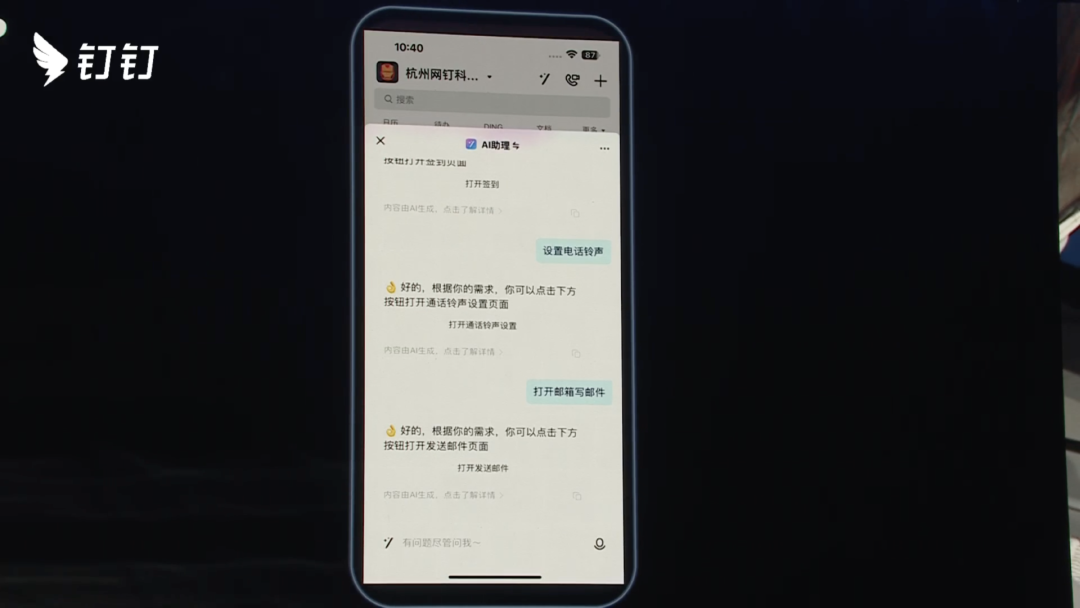
▲Image: AI assistant function demonstration
Ye Jun stated that as the AI Agent continues to improve, users will eventually get a DingTalk without menus.
From the user’s perspective, isn’t this a successful slimming down?
However, what DingTalk aims to do is far beyond this.

The key to AI’s achievements today lies in large models and big data.
This means that the richer the scenarios a product can cover, the stronger the AI Agent’s auxiliary capabilities will be, and the faster its response speed to differentiated user demands will be, thus reducing the user’s perception of “bloat” from the product.
With the support of AI, front-end users will only perceive the functions related to their current projects, while other functions are hidden by AI, preventing users from getting lost in a sea of 100 functional buttons.
For example, when assisting content creators in obtaining inspiration and completing materials, the AI Super Assistant does not require the creator to start from scratch to train the AI Agent for script creation, shot scripts, shooting plans, etc. Instead, the AI will provide corresponding services based on the needs of the video creation scenarios it has already “mastered”.
The AI Super Assistant can also extract key information from lengthy text, audio, and video content, condensing it into brief summaries.

▲Image: Ye Jun demonstrates live
So how does AI identify which content is key information and which is filler?
Of course, it relies on big data and rich application scenarios. Furthermore, big data accelerates the evolution of AI, enabling it to break through the limitations of inherent scenarios and penetrate into more new scenarios.
Today, the AI Super Assistant can not only serve professionals but can also be applied in the education of parents and children. The press conference demonstrated the operation of correcting children’s essays, showing that AI can recognize handwritten content and provide analysis and guidance, marking and interpreting typos and excellent phrases, explaining to children where the typos are and what makes the phrases good.
If you wish, you can even have AI become your life assistant.
Now, DingTalk has entered its ninth year. This means that the vast amount of data and application scenarios accumulated over nine years has become the nourishment for today’s AI. Thus, “bloat” has turned from a burden into potential “digital assets”.
If DingTalk’s AI Agent only achieves this level, it would at most be an optimized version that is easier for C-side users to use. In reality, DingTalk’s ambition is to create an entirely new ecosystem.

A very serious product launch event began with a rather unserious small application.
The decompressing small application “Knock Knock” functions similarly to the “online merit APP”; knocking will pop up a meme, and it will also give users points that can be exchanged for prizes.
In fact, the mission of this small application is quite similar to the “Jump” mini-game of WeChat back in the day. Its purpose is to inform everyone that DingTalk will officially launch the AI Agent Store in April and welcomes developers to join and publish more applications.

▲Image: DingTalk press conference scene
Through this somewhat humorous small application, DingTalk conveys a message to developers that the current AI Agent Store has low barriers to entry and high tolerance; as long as developers have creativity, they can submit applications to DingTalk. After all, there are not many applications that can be developed at a lower cost and with less seriousness than “Knock Knock”.
This is DingTalk’s biggest ambition for the next step: to create a complete link of “AI Assistant + AI Agent Store,” allowing everyone to become a creator of AI assistants, and even earn revenue from it.
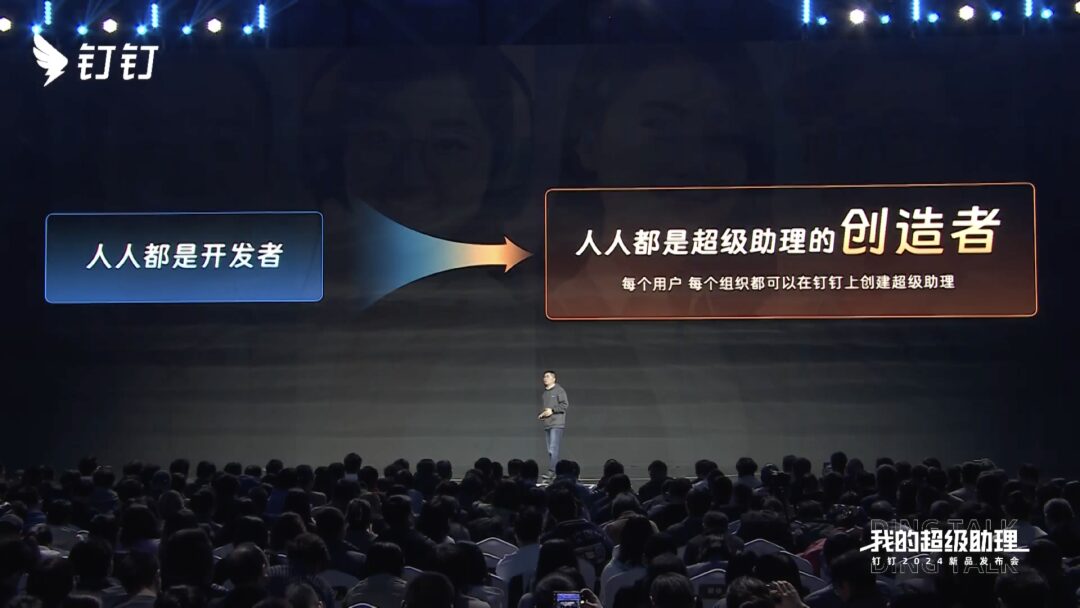
▲Image: Press conference scene
In Ye Jun’s view, AI Agents will become the main form of new SaaS.
Previously, different application scenarios required opening different SaaS products and apps, while AI Agents can allow enterprises to complete business processes, organizational management, knowledge base management, and other operations in bulk by invoking multiple AI capabilities, and can interact with external systems automatically.
As society develops, the division of labor becomes increasingly refined; the original large-scale collaboration and giant ERP systems are broken down into small collaborations and small functions. The current logic of “people finding functions” will transform into “functions finding people” under the influence of AI Agents, and human-computer interaction will shift from graphical user interfaces (GUI) to natural language interfaces (LUI), at which point functional menus will also be replaced by AI assistants.
This means that as demands and scenarios become more fragmented, there will be a need for a sufficient number of AI assistants to respond, which in turn requires more AI assistant creators.
In the logic of DingTalk’s AI Agent Store, an individual can be both a user of AI assistants, allowing AI assistants to serve them, and can also publish AI assistants to the AI Agent Store to serve more people. Thus, users are glued to the AI Agent Store, becoming part of the DingTalk ecosystem.
In Ye Jun’s words, “In the past, everyone said DingTalk served the bosses; now everyone can be the boss.”
Currently, DingTalk has 700 million users, 25 million enterprise users, 28 million daily active paid users, 120,000 paid enterprises, over 700,000 users of the AI magic wand, over 10 million low-code applications, and over 1 million full-code applications.
In the future, DingTalk aims to become a low-threshold, high-frequency, and open AI intelligent assistant platform.
The competition under the wave of AI is becoming increasingly fierce. Can DingTalk achieve the flag it set today, and can it truly open the “App Store” moment for AI Agents?
Let us wait and see.
If you have any objections to the manuscript, please contact [email protected]
End
